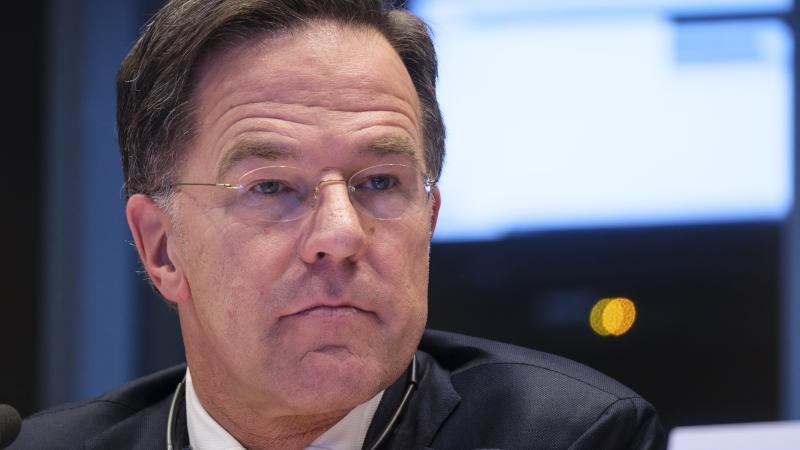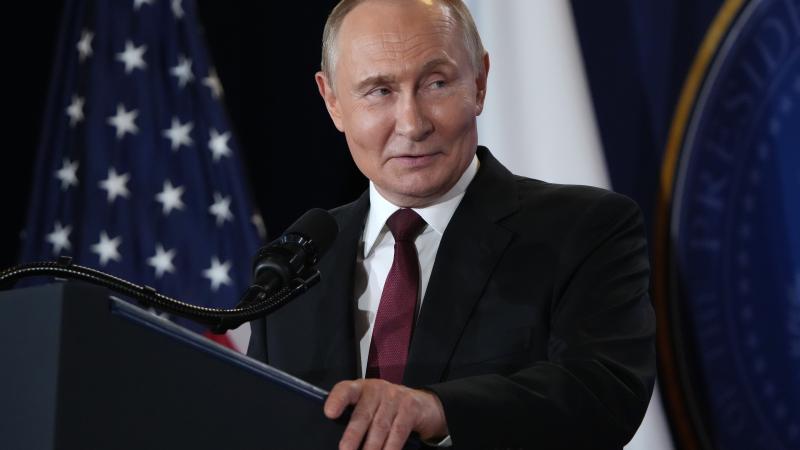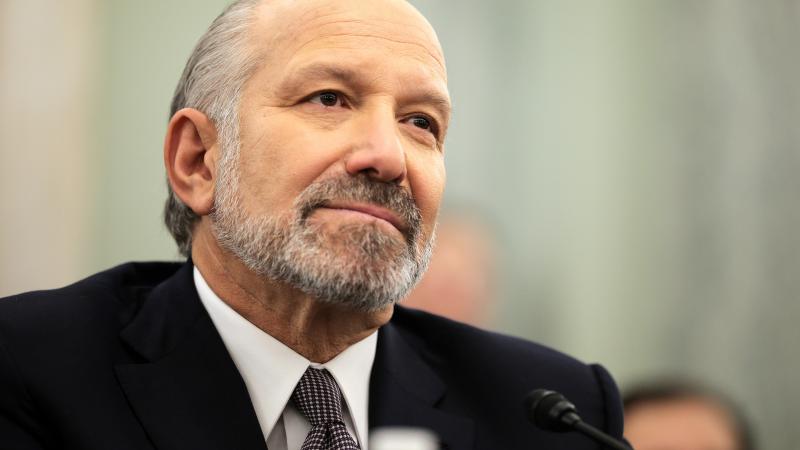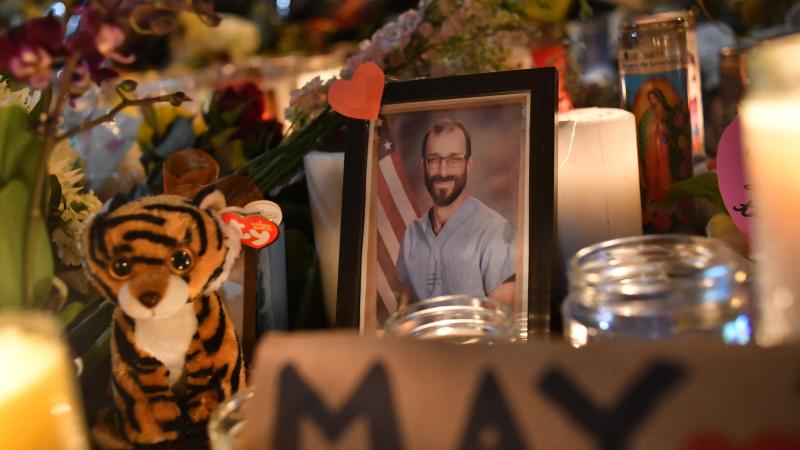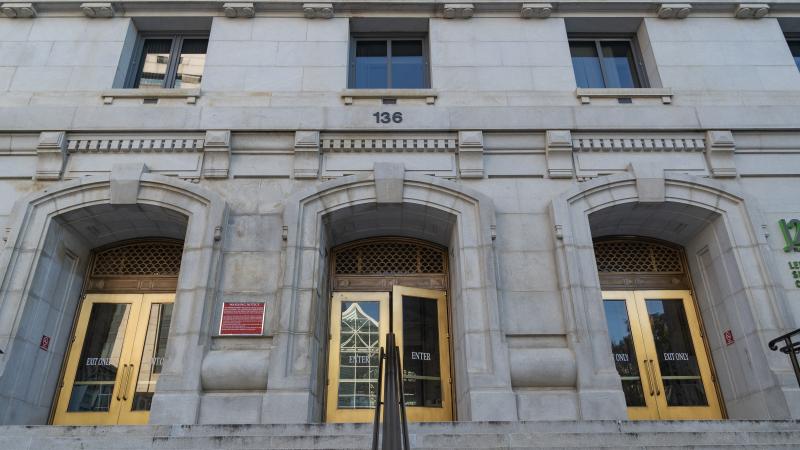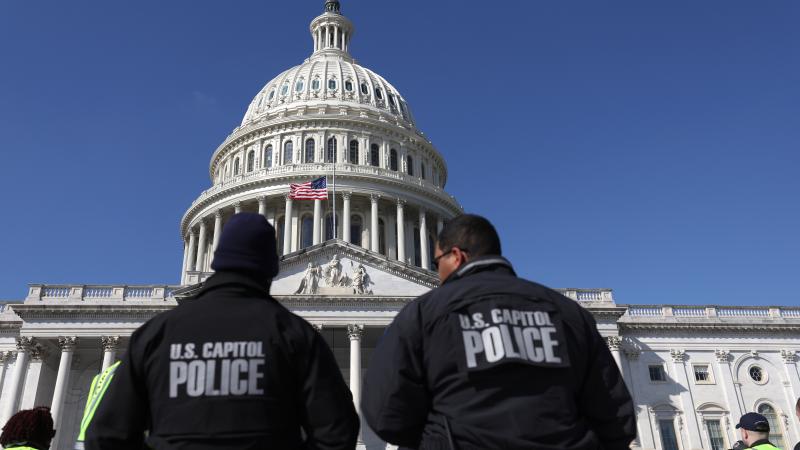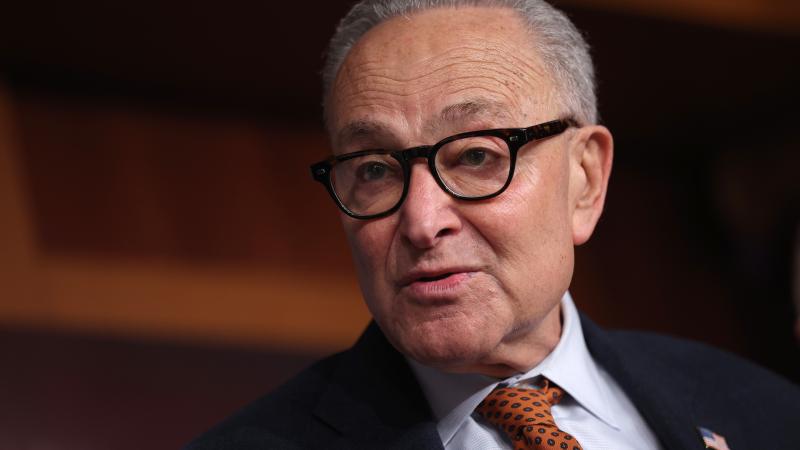Jews warned UK of rising anti-Semitism, harassment, long before Manchester synagogue murders
Jihad Al-Shamie, the man charged with attacking Jewish worshippers on the holiest of holidays, was at the time free on bail for rape charges. While the intelligentsia of the UK look the other way, the UK’s chief rabbi said the attack creates an “urgent need for national soul-searching.”
For years before the latest synagogue attack in the United Kingdom, Jews in the country have been warning about their safety, growing persecution, and a failure by the police to control anti-Israel protesters.
The UK’s chief rabbi said after the latest attack in Manchester, which left two victims and the attacker dead at a local synagogue, that there was an “urgent need for national soul-searching.”
The rabbi, Sir Ephraim Mirvis, pointed to the growing normalization of anti-semitism in the UK since Hamas’ Oct. 7, 2023 terrorist attack on Israel which sparked the ongoing war in Gaza. After the attacks, anti-Israel protesters have frequently taken to the streets of London protesting the war and Israel’s actions, with some of the rhetoric becoming clearly hateful, the rabbi told BBC Radio 4’s Today and The Guardian.
"Unrelenting wave of hatred against Jews" in UK
He said that this most recent attack in Manchester followed an “unrelenting wave of hatred against Jews” seen on the streets, on campuses, on social media and on traditional media across Britain since the start of the war.
Referring specifically to calls from protesters to “globalize the intifada” the rabbi said that “the unjustified demonization of Israel” feeds into “anti-Jewish sentiment” which encourages extremism.
The suspected attacker, Jihad Al-Shamie, was previously arrested on suspicion of rape and on police bail at the time of the knife attack on the synagogue, British police said. Authorities said they believe Al-Shamie, a British citizen of Syrian descent, was influenced by "extreme Islamist ideology." These facts further complicate the situation for the British police, who have faced scrutiny from the Jewish community for consistently showing leniency to anti-Israeli attackers while arresting those who defend their right to exist.
“Ever since 7 October 2023 there are so many people who have wondered, why are such marches allowed to take place on our streets? Some of them contain outright antisemitism, outright support for Hamas,” Mirvis said.
“You cannot separate the words on our streets, the actions of people in this way and what inevitably results […] The two are directly linked, and therefore we call on the government yet again to get a grip on these demonstrations as they are dangerous,” the rabbi added.
Last December, Mirvis called out the London police for failing to ensure that the routes of local anti-Israel marches did not pass by synagogues. Protesters chanted various slogans, such as “globalize intifada,” “from river to the sea,” and “jihad,” which many view as anti-semitic.
The rabbi called out the London police after engaging in months of negotiations to ensure that planned upcoming march routes be rerouted away from two synagogues in the vicinity, The Jewish Chronicle reported.
The calls to change the march route came just months after anti-Israel protesters assembled outside a Jewish community center in London that was hosting a conference on Israel in the wake of the Oct. 7 attacks. The Board of Deputies of British Jews said that the late-October demonstration is “part of an ongoing effort in this country, carried out under the guise of humanitarian concern, to harass and intimidate British Jews.”
"Two-tier Keir": Appearing “openly Jewish” is now a crime
One protester at the demonstration led the crowd in a chant: ““We will continue to occupy these streets every day of the week, no matter how many police… until Zionism no longer exists in the Middle East, because Zionism is a racist ideology.”
Lord Ashcroft KCMG, an influential international businessman, philanthropist, author and pollster, explained why Great Britain's Prime Minister has been dubbed "Two-Tier Keir": "Labour voters often talked about criminals being released early from prison while others were locked up for things they wrote on Facebook."
Earlier that year, in September, a senior London police official admitted that the Metropolitan Police had made mistakes in how it handled the anti-Israel protests, including not reacting swiftly to arrest individuals suspected of violating British law.
“There were instances where we did not expedite arrests, such as the case involving the man chanting for jihad,” Scotland Yard Assistant Commissioner Matt Twist said at a speaking appearance at a think tank.
A “radicalization moment” in the UK
Other incidents have sparked concern among the British Jewish community, like a video recording of a police officer warning a Jewish man against appearing “openly Jewish” at a Palestinian protest that prompted the Home Secretary to meet with leading Jewish groups to reassure them.
In January 2024, the head of UK Counterterrorism Policing, Matt Jukes, publicly warned that the fallout from the Israel-Gaza war had created a “radicalization moment” in the UK. He said that online content, amplified misinformation and AI-generated false images, were creating an “intense risk.”
At the time, he said that detectives remained especially concerned about the threat of lone wolf actors. The attack on the Manchester synagogue appears to bear similar markings to this type of attack, as only one suspect has been identified.
Last year, the Community Security Trust (CST), a charity which monitors anti-Jewish harassment and abuse and provides security for Jewish communities, released data that showed a 589% increase in incidents that it deemed part of a monumental surge in anti-Semitism in the country. The massive increase primarily followed the Oct. 7 attack—of the 4,103 incidents recorded by the group in 2023, two-thirds, 2,699, followed the terrorist attacks.
A recent survey found that Jews increasingly feel unsafe in the United Kingdom. The data, which were collected in June and July by the Institute for Jewish Policy Research, show that 35% of Jews in the country feel unsafe now, compared with only 9% who felt that way before the Oct. 7 attack against Israel. Additionally, 47% of British Jews now see anti-Semitism as a “very big” problem in the UK, up from 11% back in 2012, the survey found.
The Facts Inside Our Reporter's Notebook
Links
- the latest attack
- pointed to the growing normalization of anti-semitism
- previously arrested on suspicion
- many view as anti-semitic
- assembled outside a Jewish community center
- led the crowd in a chant
- explained why Great Britain's Prime Minister
- made mistakes in how it handled the anti-Israel protests
- a police officer warning a Jewish man
- publicly warnednn
- released data that showed a 589% increase
- Jews increasingly feel unsafe
- Institute for Jewish Policy Research
